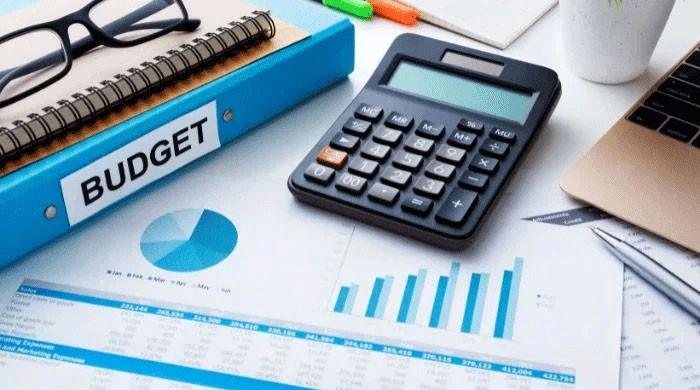The budget has been approved. The applause has faded. Once again, Pakistan resumes his uncomfortable journey through economic difficulty this time, with a road map that feels more serious than in previous years.
The federal budget for FY2025–26, with a disbursement of RS17.57 billion, is not a promise budget but of priorities. It marks a rare fiscal restriction in an customary system for a long time to excessive populist spending. What it offers is not a great advance, but an opportunity: a recognition of limits and an opportunity to reform within them. That possibility, however, will be wasted unless the bold action follows sober words.
Several corrective steps have been introduced: the restored import rates, rationalized fiscal deductions and digital trade brought to the fiscal network. The increase in the Tax Free Revenue threshold from RS600,000 to RS1.2 million offers some relief to salaried workers who deal with persistent inflation. But these are only opening movements. The real challenge lies in the implementation.
The fragile administrative machinery of Pakistan, political volatility and governance promoted by coalition complicate execution. Budget discipline is easy to declare, much more difficult to deliver. After years of recurring stagflation and crises, the public’s tolerance for sacrifice without results is thin.
Even so, an encouraging development is highlighted: political restriction. Bilawal Bhutto Zardari chose policy on populism. His support for progressive taxes and institutional reform, instead of political obstruction, points out a matured approach to governance.
This change matters deeply. Fiscal reform cannot succeed without political property. Bilawal’s constructive posture can represent a generational pivot, from noise to nuance. Pakistan needs such leadership because the margin of error has gone.
The country continues to depend on external life support. The recent reset of loans of $ 3.7 billion of China offers space to breathe but not stability. The IMF is not here to finance growth, but to stop bleeding. Only internal policy can pave the path to recovery.
The distinction between good and bad debt is simple: good debt creates capacity, the collapse of the delays of the uncollectible debt. This year, Pakistan will spend RS5.7 billion on interest payments, five times its federal development budget. That is not a sustainable trajectory.
Consider Egypt. Under IMF, he devalued his currency and cut subsidies. These were painful decisions that finally unlocked long -term investment. Pakistan has postponed such options for too long.
Worse, the debt load can still be deepened. The IMF has warned that global debt levels are worse than they seem due to hidden liabilities and obligations outside the books. For Pakistan, with its close tax base and its heavy import economy, the danger is acute.
The budget projects RS14.13 billion in federal income, of which RS8.2 billion will go to the provinces under the NFC award. Defense, debt service and subsidies consume most of the rest. That leaves little space for expenses or discretionary development.
However, within these limitations, some reforms deserve recognition. Digital trade taxes is late. Online platforms, payment catwalks and messaging services are now under the fiscal network. A 5% tax on foreign digital services aligns Pakistan with Global Trends from France to India. But the effectiveness will depend on the application. Does the FBR have the ability and commitment to regulate this growing sector? Or the poor implementation, once again, will undermine a promising policy?
Other countries offer lessons. In Indonesia, tax transfers to local governments are increasingly linked to performance metrics. Pakistan should adopt a similar model. For your credit, the budget also introduces several structural shoves: tax credits for low -income housing, stricter restrictions in cash transactions and greater scrutiny of property income.
These are steps in the right direction, but modest. What Pakistan really needs are not incremental adjustments but a deep structural reform. This includes aligning energy prices with real costs, restructuring state companies that make losses, review of the FBR and increasing exports through real commercial liberalization. The most critical thing is that Pakistan must guarantee judicial predictability and the application of contracts to attract sustained investments.
Greece offers a relevant parallel. Before a paralyzing debt crisis, it implemented painful reforms, including pension restructuring and liberalization of the labor market under intense internal resistance and international scrutiny. Today, it is reaping the benefits. Pakistan’s problems are not smaller, and the urgency of the reform is equally large.
This year’s budget makes something strange: he admits reality. It establishes the limits, avoids theatricality and recognizes the scale of the crisis. That is a beginning.
But now comes the difficult part. To ensure its IMF program, Pakistan must meet the promised reforms, particularly in the energy sector. Fiscal evasion must be stopped through administrative review. Excessive dependence on short -term loans must end. Coordination between the center and the provinces must improve. The most important thing, political stability must replace constant rotation.
This budget will not transform Pakistan, but acknowledges that the transformation begins with honesty. In the measured commitment of Bilawal Bhutto Zardari, a new type of political maturity is glimpsed. If that pragmatism carries root through the political spectrum, Pakistan can still replace their crisis cycles with a path of gradual reform.
For now, the fiscal path remains narrow and the uncertain land. But in a country that has frequently chosen the illusion of discipline, even this modest realism is a form of progress.
The writer is a professor of Finance, directing international and transnational education in the Faculty of Accounting, Finance and Economics of the University of Birmingham City. The Tweets/Public @hafizusmanrana
Discharge of responsibility: The views expressed in this piece are that of writer and do not necessarily reflect the editorial policy of PakGazette.TV.
Originally published in the news




